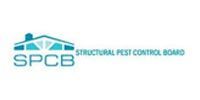FAQs
Escocia Termite
Have a termite treatment-related question? Escocia Termite has the answer. Check out these FAQs and call us today for more information!
Are the chemicals you use safe for pets and children?
XT-2000 Orange Oil Plus offers several advantages: it doesn't leave toxic residues or by-products, it's safe around pets and landscaping, and it's produced from a renewable resource-citrus rinds. This affordable treatment option doesn't require tenting your structure, saving you money by eliminating the need to discard food and medications, prevent plant damage, or relocate your family and pets while a termite inspection company is working on your home.
What are subterranean termites?
According to UMass Amherst, subterranean termites account for roughly 95% of termite damage to American homes and businesses, causing over $2 billion in annual damage-more than windstorms and fires combined. Want a simple way to check for them? Tap your wood with a screwdriver handle; a hollow sound often indicates trouble. If you investigate hollow-sounding areas by removing some surface wood, you might find the empty chambers these pests have created. Since these termites establish colonies in soil and need moisture to thrive, keeping your structural wood dry is your best preventative measure. It's also a good idea to call a termite inspection company as soon as possible.
What are dry wood termites?
While less common in the U.S. than their subterranean cousins, dry wood termites pose unique challenges because they live directly in dry wood without needing ground contact or additional moisture. Look for smooth tunnels in wood and tiny, hard fecal pellets resembling ground pepper-classic signs of their presence. These termites typically enter properties through untreated lumber or tree limbs. Though they work more slowly than subterranean termites, given enough time, they can completely compromise your building's structural integrity.
If you do notice any of these characteristics, it's a good idea to call a termite inspection company as soon as possible.
Do I have termites or ants?
Spotted winged insects inside? They might be termites or ants in their reproductive stage. Here's how to identify termites: they have paddle-shaped wings about twice their body length, straight and relatively short antennae, and bodies with just two segments-a head and a ribbed abdomen.
If you're still unsure, contact Escocia Termite. According to Pestworld.org, each year, termites cause more than $6.8 billion in property damage - costs that aren't covered by homeowners insurance policies. We're a reliable termite inspection company who can get to the bottom of the issue, before too much damage is inflicted.
What is Vikane Gas?
Vikane gas is a fumigant that completely dissipates after treatment because it's an inorganic gas. This means no surface residue, odor, or film remains in your home or business. The practical benefit? No need to wash dishes, linens, clothing, or furniture following fumigation.
Wondering if your home could use this kind of treatment? Contact a termite inspection company immediately so we can assess your infestation.
Can termite infestations be prevented?
You can make your property less appealing to termites with some proactive measures. Focus on eliminating moisture accumulation near structural wood by adding vents in damp-prone areas, repairing leaky plumbing near foundations, and storing firewood, cardboard, newspapers, and similar materials away from your building's foundation. An annual visit from a termite inspection company is also worth considering, as it can catch problems early before significant damage occurs.
How long do I need to vacate the building during treatment?
For your termite treatment, you'll need to vacate your property anywhere from six hours to three days, depending on which treatment method is being used. If your home is receiving an Orange Oil treatment, you may only need to leave for about 6-8 hours on the day of treatment. For Vikane gas fumigation (tenting), you'll typically need to vacate for three full days to allow for the treatment process and proper ventilation afterward. The exact timeframe will be specified in your treatment plan, which technicians with our termite inspection company will review with you before scheduling. We'll make sure you have clear instructions about when it's safe to return to your property.


Share On: